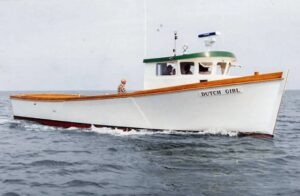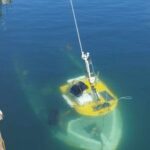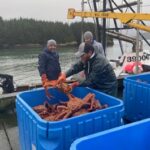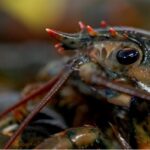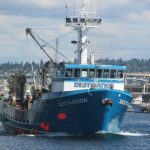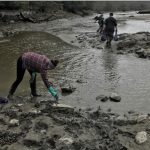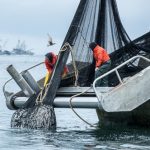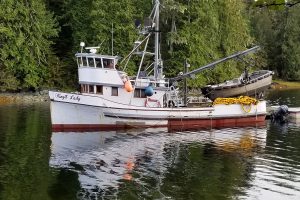Tag Archives: Monique Coombs
Days on the water, nights at Town Office: Harpswell lobsterman advocates for working waterfront on 7 committees
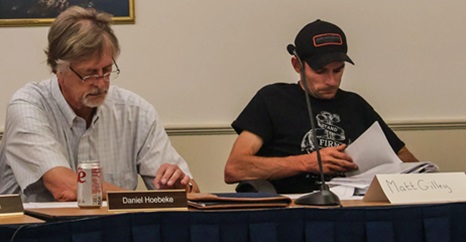 Matt Gilley stood in front of a shelf in his Cundy’s Harbor home. It holds a collection of marine oddities from the bottom of lobster traps, such as unique lobster claws, a seahorse, and a full-sized clam that grew inside a Coke bottle. “The fun part of it is, you don’t know what’s going to come up,” he said. Gilley himself is a rarity in Harpswell. In a town with 216 miles of coastline and “working waterfront” on many local signs, he is one of a small group of commercial lobstermen involved in town government, spending his mornings on the water and his evenings advocating for those who work on it. “I want to see lobstering continue, and the only way for that to continue is for there to be another generation,” he said. “If I can do anything to conserve what little we have left so other people can do it, I’m going to do it.” Photos, more, >>CLICK TO READ<< 09:10
Matt Gilley stood in front of a shelf in his Cundy’s Harbor home. It holds a collection of marine oddities from the bottom of lobster traps, such as unique lobster claws, a seahorse, and a full-sized clam that grew inside a Coke bottle. “The fun part of it is, you don’t know what’s going to come up,” he said. Gilley himself is a rarity in Harpswell. In a town with 216 miles of coastline and “working waterfront” on many local signs, he is one of a small group of commercial lobstermen involved in town government, spending his mornings on the water and his evenings advocating for those who work on it. “I want to see lobstering continue, and the only way for that to continue is for there to be another generation,” he said. “If I can do anything to conserve what little we have left so other people can do it, I’m going to do it.” Photos, more, >>CLICK TO READ<< 09:10
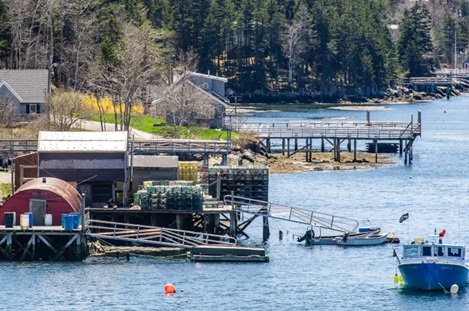
Harpswell adopts ‘right to fish’
Harpswell has a new right-to-fish policy intended to protect the town’s working waterfronts and fishermen. “We have a sign when you come into town saying we’re a working waterfront community. We’re pushing the town to do more than just a sign,” Cundy’s Harbor fisherman Matt Gilley, who helped develop the policy, told the Anchor before the meeting. The Harpswell Select Board approved the policy unanimously on July 11, but not before some tense exchanges between board members and advocates. The policy commits the town to several actions. Speaking to the Anchor, Gilley emphasized a provision protecting fishermen from nuisance complaints about sights, sounds or smells that might result from fishing activities, like operating boat engines or storing fishing traps on private property. Maine law already prevents such complaints against fishermen who are operating in line with applicable laws or rules. more, >>CLICK TO READ<< 13:38
Waterfront property owners scramble to repair after damaging storms, fearing lobster fishing season at risk
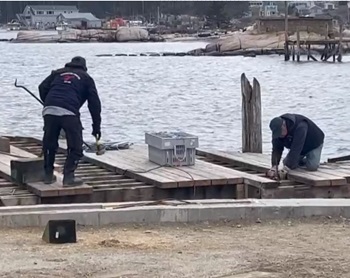 According to Gov. Janet Mills, the back-to-back storms that hit the state earlier this year left behind more than $70 million in damage to Maine’s infrastructure, including the destruction of several working waterfront properties and docks, ultimately leaving the success of this year’s lobster fishing season uncertain. Last week, the Maine Legislature signed off on a $60 million supplemental budget for storm damage relief. Aldrige’s ferry dock was damaged by storms as well, but his repairs are complete. He said he’s watching lobstermen push on at their lowest. “Fishermen are carting bait from trucks down on carts to where a dock used to exist,” Video, more, >>CLICK TO READ<< 09:28
According to Gov. Janet Mills, the back-to-back storms that hit the state earlier this year left behind more than $70 million in damage to Maine’s infrastructure, including the destruction of several working waterfront properties and docks, ultimately leaving the success of this year’s lobster fishing season uncertain. Last week, the Maine Legislature signed off on a $60 million supplemental budget for storm damage relief. Aldrige’s ferry dock was damaged by storms as well, but his repairs are complete. He said he’s watching lobstermen push on at their lowest. “Fishermen are carting bait from trucks down on carts to where a dock used to exist,” Video, more, >>CLICK TO READ<< 09:28
Maine fishermen hope for relief after powerful storm damages wharfs, equipment
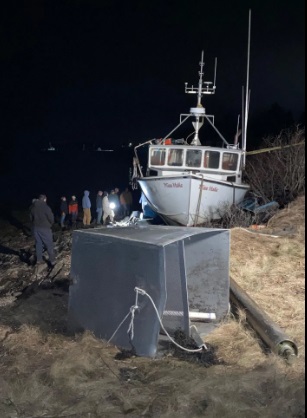 Much of Coastal Maine is now in a State of Civil Emergency after this week’s storm caused widespread damage up and down the coast. That announcement by Governor Janet Mills will mobilize resources for recovery but might also provide a bit of extra relief for Maine fisherman. Fisherman were hard hit by the storm. That damage is illustrated in Harpswell, where a lobsterman’s boat was washed up against the shore during Wednesday’s high tide. Thursday, fishermen in Harpswell were trying to secure and fix it before the boat would get hit by more winds and waves from Saturday’s storm. Video, photos, more,>>click to read<< 09:15
Much of Coastal Maine is now in a State of Civil Emergency after this week’s storm caused widespread damage up and down the coast. That announcement by Governor Janet Mills will mobilize resources for recovery but might also provide a bit of extra relief for Maine fisherman. Fisherman were hard hit by the storm. That damage is illustrated in Harpswell, where a lobsterman’s boat was washed up against the shore during Wednesday’s high tide. Thursday, fishermen in Harpswell were trying to secure and fix it before the boat would get hit by more winds and waves from Saturday’s storm. Video, photos, more,>>click to read<< 09:15

National mental health campaign targets commercial fishermen
The commercial fishing industry is known for its grueling work conditions and unpredictable nature, which can take a toll on the mental health of fishermen. However, despite the evident need, the industry has historically been underserved in terms of mental health care resources. Recently, the Maine Coast Fishermen’s Association and Northeast Center for Occupational Safety and Health teamed up to work with Man Therapy to create a campaign specifically targeting commercial fishermen. Man Therapy is an innovative approach that uses humor and relatable content to raise awareness about mental health care and provide resources for fishermen, according to a press release.>>click to read<< 09:45
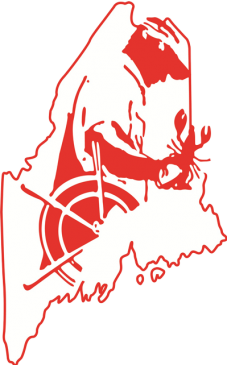
Preserving our lobstering heritage
When Maine’s lobster industry looks back on 2022, we’ll likely remember the challenges — high bait and fuel prices, low dock prices, shortages of marine supplies, and a complicated legal challenge that threatens to end the fishery as we know it. But we’ll also remember the many heartwarming times when people and communities came together, just as they did in the Harpswell, Orr’s and Bailey islands region in early November. >click to read< 13:24
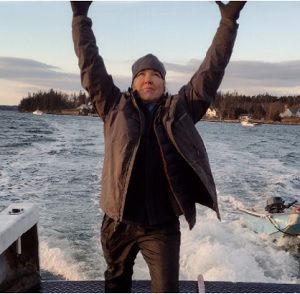
Maine seafood harvesters are taking on an unexpected new hobby
Lobstermen repeatedly haul unwieldy traps, oyster farmers bend over to pull up hulking cages and scallopers hunch over to shuck their prized shellfish at sea. Harvesting seafood for a living can exact a stiff toll on the lower back. The industry has long had a reputation for a “rub some dirt on it” mentality when it comes to these and other daily aches and pains, but a new program aims to introduce fishermen to yoga to keep them on their feet and out on the water. >click to read< 12:26
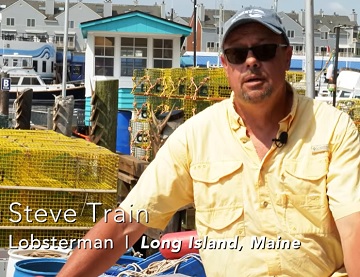
Video: Road to Disaster – Voices of Maine Lobstermen
In the first installment of this series, we get a bird’s-eye view of the current status of Maine’s lobster fishery, which is under assault on two fronts. In this episode, we only hear from lobstermen and their advocates. (If you want to hear more of the opposing views of wind lobbyists, just read any given corporate media outlet’s coverage of this subject.) Upcoming episodes will bring in additional perspectives…there are a total of 20 different interviews that I conducted in 2021, so you will not want to miss these. Video by Jason Joyce >click to watch< 17:07
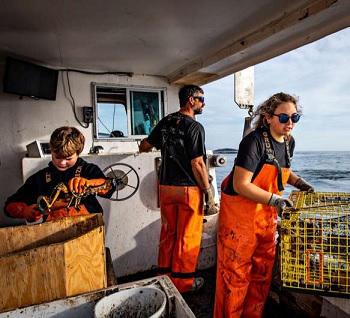
Maine’s having a lobster boom. A bust may be coming.
The waters off Maine’s coast are warming, and no one knows what that’s going to mean for the state’s half-billion-dollar-a-year lobster industry, the largest single-species fishery in North America. Some fear that continued warming could cause the lobster population to collapse. The Gulf of Maine, an ocean body brimming with marine life, is cradled by Cape Cod in the south and the Bay of Fundy in the north, and bounded in the east by two underwater shoals, George’s Bank and Brown’s Bank. In 2015, climate scientist Andy Pershing, formerly of the Portland-based nonprofit Gulf of Maine Research Institute, published a paper in Science concluding that the gulf was warming faster than “99% of the global ocean.” That eye-popping revelation was enough to keep fisheries managers and a whole lot of Mainers awake at night. >click to read< 16:27
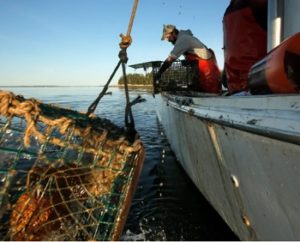
The economic fallout for plummeting demand and prices is producing the worst conditions lobster fishermen have seen in years
“The problem is really only beginning for this industry,” said Sue Clough, who, along with her husband Vincent runs Stern Seafood, a major buyer in Scarborough of lobster harvested by local fishermen.,, Dennis Violette, who has been fishing for lobster out of Scarborough for the past 40 years, said prices for lobster now are about $1.25 per pound less than at this time last year, due to the drop in demand. He and his fellow lobstermen aren’t shipping as many overseas as in previous years, and demand has dropped from processors in Canada, which are usually big customers for local fishermen like himself. If tourists stay away this fall, he said, it’s only going to get worse. >click to read< 09:02
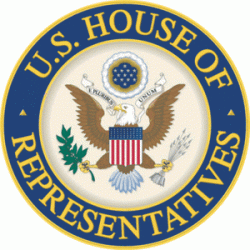
Measure to help protect, enhance working waterfronts passes U.S. House
The measure, introduced by Rep. Chellie Pingree of Maine, D-1st District, would provide $24 million in federal grants and loans to states, which could allocate funding to municipalities, nonprofits and fishing co-ops for projects that preserve or improve working waterfront infrastructure. If approved by the Senate, it also would create a task force at the Commerce Department charged with identifying threats to working waterfronts, including climate change and marketplace pressures. >click to read< 09:02
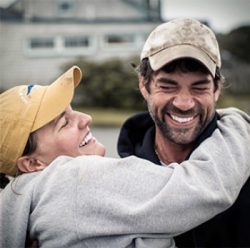
Opinion: Fishermen, like farmers, deserve support
While I agree with the Editorial Board’s view that small family farms are not getting appropriate consideration and are finding it difficult to do business (Our View, Oct. 4), I’d be remiss if I didn’t point out the duplicity of some of the points that were made, such as “… as Maine farmers know, smaller farming operations are generally good stewards of the land just as a matter of course.” This confidence and understanding are rarely extended to fishermen, even Maine fishermen. by Monique Coombs, >click to read< 08:46
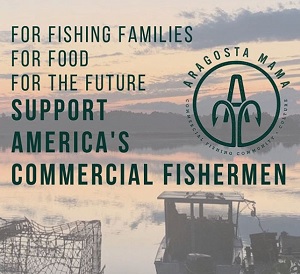
October is National Seafood Month & Aragosta Mama wants to challenge you.
Harpswell, Maine— September 17, 2019 — October is National Seafood Month. The origin for the designation is unknown but nevertheless it should be celebrated and promoted, especially so here in Maine. Aragosta Mama was created by Monique Coombs (author) who wants more people to understand and love the community and culture that is inspired by the commercial fishing industry. Commercial fishing is important to coastal communities around the country and provides innumerable jobs and healthy seafood to feed a fast-growing population. >click to read< 17:00
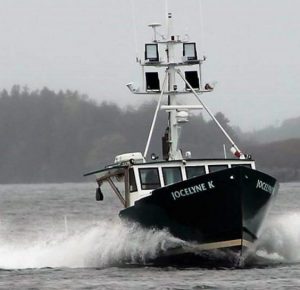
Lobsterman’s wife
My husband gets up around 4 a.m. to go lobstering on days that the weather allows. By 5 o’clock, he’s down at the boat and headed out of the cove, well before I’m getting out of bed and getting the kids ready for school. Once the kids are off, I head to work myself. I don’t worry about my husband constantly, but I do so sporadically throughout the day. A long time ago he told me that I didn’t need to worry about him on the bad weather days, it was the good days that I should think about him more, because those are the days that he might not notice things that are out of place; that he’s comfortable on the boat, not complacent, but secure. continues, >click to read<12:05
Maine fishermen’s group doesn’t just want to catch fish
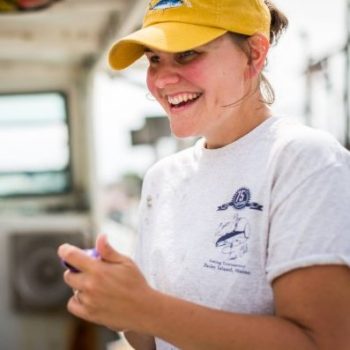 A group representing various parts of Maine’s seafood industry on Thursday will set to crafting a plan to build its future workforce, a problem it and other trades in the state see ahead. Monique Coombs, who founded and leads the Maine Seafood Network, said the group so far has been loosely organized, but she “wanted to get to the point where we could affect the supply chain in a productive and useful way.” Coombs said the focus on workforce development came from speaking with the group’s members about common challenges, with training posing a challenge for employers like seafood processors and fishermen alike. Read the rest here 22:43
A group representing various parts of Maine’s seafood industry on Thursday will set to crafting a plan to build its future workforce, a problem it and other trades in the state see ahead. Monique Coombs, who founded and leads the Maine Seafood Network, said the group so far has been loosely organized, but she “wanted to get to the point where we could affect the supply chain in a productive and useful way.” Coombs said the focus on workforce development came from speaking with the group’s members about common challenges, with training posing a challenge for employers like seafood processors and fishermen alike. Read the rest here 22:43

































